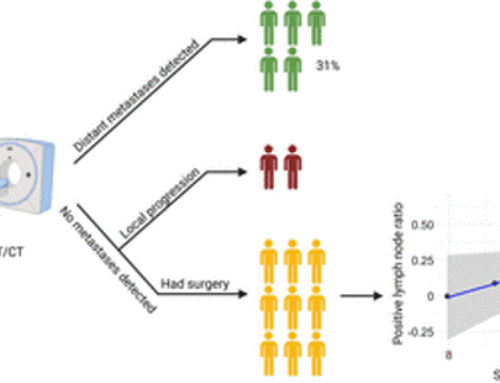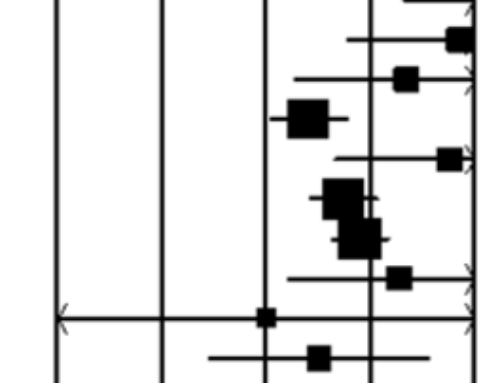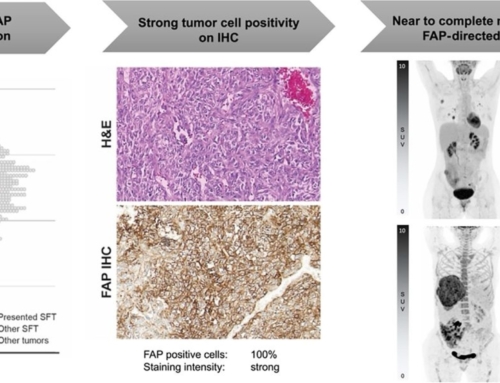Katharina Dendl 1,2 Stefan A. Koerber 3,4,5 Clemens Kratochwil 1 Jens Cardinale 1,2 Rebecca Finck 1 Mardjan Dabir 2 Emil Novruzov 2Tadashi Watabe 6 Vasko Kramer 7,8 Peter L. Choyke 9 Uwe Haberkorn 1,10,11 and Frederik L. Giesel 1,2
Abstract:A fibroblast activation protein (FAP) is an atypical type II transmembrane serine protease with both endopeptidase and post-proline dipeptidyl peptidase activity. FAP is overexpressed in cancer-associated fibroblasts (CAFs), which are found in most epithelial tumors. CAFs have been implicated in promoting tumor cell invasion, angiogenesis and growth and their presence correlates with a poor prognosis. However, FAP can generally be found during the remodeling of the extracellular matrix and therefore can be detected in wound healing and benign diseases. For instance, chronic inflammation, arthritis, fibrosis and ischemic heart tissue after a myocardial infarction are FAP-positive diseases. Therefore, quinoline-based FAP inhibitors (FAPIs) bind with a high affinity not only to tumors but also to a variety of benign pathologic processes. When these inhibitors are radiolabeled with positron emitting radioisotopes, they provide new diagnostic and prognostic tools as well as insights into the role of the microenvironment in a disease. In this respect, they deliver additional information beyond what is afforded by conventional FDG PET scans that typically report on glucose uptake. Thus, FAP ligands are considered to be highly promising novel tracers that offer a new diagnostic and theranostic potential in a variety of diseases.
Affiliations:
- Department of Nuclear Medicine, Heidelberg University Hospital, 69120 Heidelberg, Germany
- Department of Nuclear Medicine, Düsseldorf University Hospital, 40225 Düsseldorf, Germany
- Department of Radiation Oncology, Heidelberg University Hospital, 69120 Heidelberg, Germany
- Heidelberg Institute of Radiation Oncology (HIRO), 69120 Heidelberg, Germany
- National Center for Tumor Diseases (NCT), Heidelberg University Hospital, 69120 Heidelberg, Germany
- Department of Nuclear Medicine and Tracer Kinetics, Osaka University Graduate School of Medicine, Osaka 565-0871, Japan
- Positronpharma SA, Santiago 7500921, Chile
- Center of Nuclear Medicine, PositronMed, Santiago 7501068, Chile
- Molecular Imaging Program, Center for Cancer Research, National Cancer Institute, National Institutes of Health, Bethesda, MD 20892-1088, USA
- Clinical Cooperation Unit Nuclear Medicine, German Cancer Research Center (DKFZ), 69120 Heidelberg, Germany


![FAP Expression in Renal Tumors Assessed by [68Ga]Ga-FAPI-46 PET Imaging and FAP Immunohistochemistry: A Case Series of Six Patients](https://sofie.com/wp-content/uploads/2025/12/info.ibamolecular-scaled-500x383.jpg)


![[68Ga]Ga-API-46 PET accuracy for cancer imaging with histopathology validation: a single-centre, single-arm, interventional, phase 2 trial](https://sofie.com/wp-content/uploads/2025/09/image-500x383.png)
